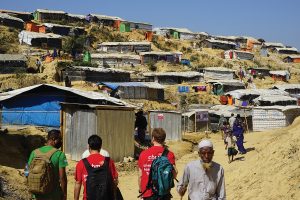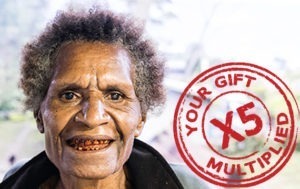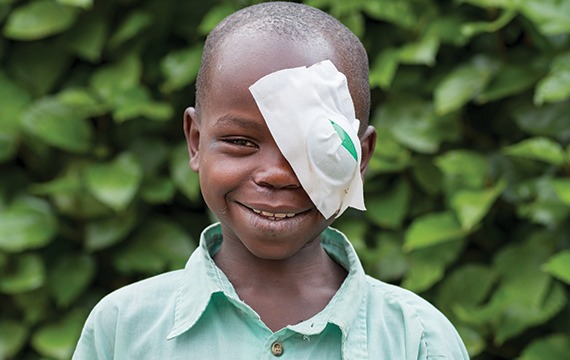Cataracts – Rwanda
Support the Kabgayi Eye Unit and give the miracle of sight to more children who are needlessly blind
Description
Additional information
| Frequency | One-off, Every Week, Every 2 Weeks, Every 4 Weeks, Every Month, Quarterly, Annually |
|---|
Support the Kabgayi Eye Unit and give the miracle of sight to more children who are needlessly blind
The Kabgayi Eye Unit (KEU) is a department within Kabgayi Hospital located in Muhanga District in the Southern Province of Rwanda. Kabgayi Hospital is run by the Catholic Diocese of Kabgayi and works in partnership with cbm and the Rwandan Ministry of Health, who has recognised KEU as a referral centre for ophthalmology in Rwanda.
The eye unit officially opened in 1993, thanks to collaboration between Kabgayi Diocese and cbm, and significant improvements were made in 2002 when the first full time ophthalmologist arrived. Situated between two major cities in Rwanda, Kigali and Butare, it is easily accessible with public transport and is now the most productive eye unit in Rwanda, performing about 6,000 surgeries every year. KEU receives patients referred by health centres and hospitals from the whole country – an estimated 80% of all eye surgeries in Rwanda are performed by the Kabgayi ophthalmologists.
KEU is focused on reaching the poor, and welcomes patients from within the country as well as neighbouring countries such as East Democratic Republic of Congo (DRC), Uganda and Burundi. KEU also conducts surgical outreach clinics all over Rwanda to serve the poorest people in hard to reach places.
Kabgayi Eye Unit has an outreach programme to serve people in the poorest rural communities that cannot afford to leave work or pay the cost of travel for checkups. The services of Kabgayi Eye Unit significantly contribute to eradicating avoidable blindness in Rwanda. Cataract remains the major cause for blindness (56%) and severe visual impairment (33%) in Rwanda.
THE NEED
Rwanda is home to 12 million people, distributed over a large area. There is a pressing need for more specialist eye surgeons. Whereas New Zealand has over 160 ophthalmologists, there are just 18 ophthalmologists in Rwanda living solely in the capital city. Consequently, people living in rural areas are especially vulnerable to avoidable blindness and visual impairment, particularly from cataracts and glaucoma.
WHAT YOUR GENEROUS SUPPORT CAN HELP FUND
| Frequency | One-off, Every Week, Every 2 Weeks, Every 4 Weeks, Every Month, Quarterly, Annually |
|---|




Freephone: 0800 77 22 64 (NZ only)
Phone: +64 9 414 9405
Email: enquiries@cbmnz.org.nz
PO Box 303477, North Harbour, Auckland 0751
Registered Charity: CC26154
Stay up-to-date and find out how your generosity can make a difference. Hear about cbm news, events, and appeals.
